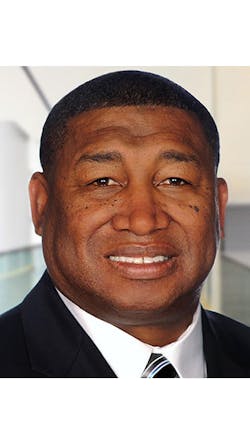Talent Advisory Board: How to Know When You're Ready for the Next Career Challenge (Part 2)
The IndustryWeek Talent Advisory Board offers monthly advice on how its members got to where they are in the manufacturing world. They offered so much great advice for May that we're breaking it into two parts, with half of the responses running Tuesday May 30, 2023), and half running today (Wednesday, May 31, 2023). If you have a question for the group, please send it to [email protected]. This month's question was:
When do you know when you’re ready for your next career challenge?
Ruthlessly Evaluate Your Own Skills and Capabilities
Billy Ray Taylor, Founder and CEO, LinkedXL
Early in my career, I expressed interest in a higher role to my boss. Although I had the operating process, administration and daily management system down to a science, my mentor told me I lacked the overall business acumen to connect operations to the bottom line. I was disappointed, but I took his advice and a smaller developmental role, which turned out to be a challenging-yet-valuable experience because the role exposed my developmental needs and helped me close my skill gap.
After two years of learning the business, I was promoted to assistant plant manager of a larger plant in Texas. Two days into the role, the plant manager exited, and I was elevated to the top role of plant director. We erased a $12 million profit deficit in eight months. This would not have been possible without my experience in the (smaller) business center role.
Looking back, I now understand the importance of being self-aware and acknowledging when we need additional support or training. It’s also crucial to understand the responsibilities of the role we’re taking on and be willing to seek support when needed.
In conclusion, taking risks and embracing new opportunities is vital to our career growth. Still, it’s equally essential to be honest with ourselves about our strengths and weaknesses and close any gaps before taking on a new challenge. With this mindset, our career paths can be full of exciting challenges and rewarding experiences.
Never Compromise on Principles
Carl Livesay, General Manager, Mercury Plastics Inc.
- Scenario 1—We have an optimistic perspective that we can outperform someone else, but we often feel nervous and almost fearful about what to do if we are selected.
- Scenario 2—We are thrust into a new role either because a leader has confidence in us or due to circumstances beyond our immediate control, which is what happened to me.
For several years, I worked as a manufacturing consultant, representing the best interests of our clients. We tackled assignments, including:
- Turnaround specialists, typically engaged by stakeholders or creditors as part of a high-pressure work-out program. Our primary goal was to take corrective action to protect stakeholders’ interests and, secondarily, to retain the workforce.
- Due diligence for investors. Our team would analyze the operational condition of a business, and if the investor decided to acquire the business, we would be assigned to implement the recommendations we made.
- Extensive ERP work. Responsibilities included developing requirements, identifying suitable ERP providers, managing demonstrations and assisting with purchase negotiations, data conversion, conference room pilots and user training.
I was prepared for the decisions I made when starting a new business, although I didn’t fully realize it at the time. With a wife working from home and three young children to support, I was fighting to make ends meet.
Consulting companies could receive up to 40% of the total cost of software from software providers. However, we didn’t accept any compensation from suppliers to maintain our independence and avoid conflicts of interest. That’s where the challenge arose.
Unfortunately, my employer decided to accept fees from two companies: a major hardware provider and one of the larger software providers. This compromised our independence and was clearly unethical. Despite several discussions, the consulting firm’s leadership remained firm in their decision to partner with suppliers accepting fees.
I informed my team that my career and reputation were built on independence, and I would be resigning as soon as the current projects in process were completed. Three out of the five team members asked if they could join me. After discussing the details with the consulting firm’s ownership, we left on amicable terms.
I started an independent consulting firm with three minority share partners, embarking on the riskiest endeavor of my career. When times were tough, I worried about meeting payroll, and when things were going well, I fretted about what I might have overlooked.
In hindsight, resigning and starting my own business was the right decision. As an employee, I never aspired to be an owner, and that remains true to this day. The challenges I faced were like being a member of the leadership team for an employer, but I had to consider long-term financial decisions more carefully as I was working with limited capital and a nervous cash flow.
Starting a business brought immense pressure, but it also taught me valuable lessons:
- Stand by your principles and do what’s right, even when nobody is watching.
- Value and protect your integrity at all costs.
- Marriage is a team sport. My wife Brenda took the lead in raising our children and managing our household, enabling me to focus on supporting our family. Her belief in me and her willingness to make sacrifices made everything possible. It’s a tremendous advantage to marry your best friend.
- Entrepreneurs are never off work. Regardless of how much work is in your backlog, you need to fight for new business like you are the third monkey on the Ark and it is starting to rain.
Follow Your Instincts
Audrey Van de Castle, Director of Digital Transformation - Operations Excellence, Stanley Black & Decker Inc.
Within a year of getting that job, we were invested in by a large company, and I realized that it would enable me to turn this dream part time job into a dream full time job and even career. Because of my willingness to step up, even when it wasn’t technically my responsibility, it was a no brainer for one of the few full-time roles to be given to me.
In that new full-time role, I was able to get experience with managing people, money, workspaces, events and many other technical and business skills. I could tell that it was time for me to expand and that I was ready to officially take on more responsibility – and it was absolutely a launching point for my professional career. From that experience, I learned a few things:
- Career paths do not need to be linear or typical.
- Going above and beyond can pay off in the right environment.
- Learning on the job is a requirement for excellence!
Two Paths to Leadership
Tami Wolownik, Head of People & Organization, North America at Siemens Mobility
Early in my career, I was in the printing industry as part of a human resources team. I had been in the role for three years, delivering on all expectations, when my manager came to me and said he thought I was ready to jump into the operations side of the house… and before I knew it, I was the director of customer service, responsible for customer relationship management and distribution planning. I was scared to death, but excited about the possibilities that lay ahead of me. I remember walking into my first team meeting. I was candid with them and told them, I did not know as much as they did about operations, but I was there to learn and support them along the way. Together, we would succeed and make the operations more efficient.
Fast forward 15 years, and I had been with Siemens for awhile when we learned that Siemens Mobility would be carving out of the larger organization in preparation for an intended merger. They were looking for someone to head up the human resources organization in North America, who would be responsible for not only carving out all of the HR systems and benefits but readying an organization for the unknown.
I raised my hand without thinking twice about it. The idea of creating a new organization, bringing two cultures together and setting an organization up for long-term success excited me. Although the merger ultimately did not go through, I have never regretted taking the leap with the organization.
In both instances… there were a few key takeaways:
- Growth mindset is key – you have to be willing to learn from those around you and seek out resources that help fill your gaps in knowledge or experience.
- Find your mentor – whether a manager, a colleague or an individual outside of your organization, find a person to bounce ideas off, talk through challenges and be a supporter when you need one.
- Believe in yourself – you’ve achieved this growth because of your hard work and proven ability, be confident that you will succeed.
Know When You’re Not Needed
Paul Baldassari, Executive Vice President of Worldwide Operations, Flex
About the Author
IW Talent Advisory Board
An expert panel of manufacturing leaders offering advice on how to advance your career.
Beginning a career in any industry is challenging, and many people early in their journeys in manufacturing need advice on how to advance and reach the next milestone. IndustryWeek’s Talent Advisory Board collects manufacturing leaders who rose through the ranks and are happy to share stories and advice on how they got to where they are now. This group includes senior-level people and young leaders who advanced quickly in their organizations. They work for large companies or run their own businesses, representing a wide swathe of careers within manufacturing.
Every month, we ask the group a new question about their careers or life experiences. If you have a question for the group, please send it to IndustryWeek [email protected].





